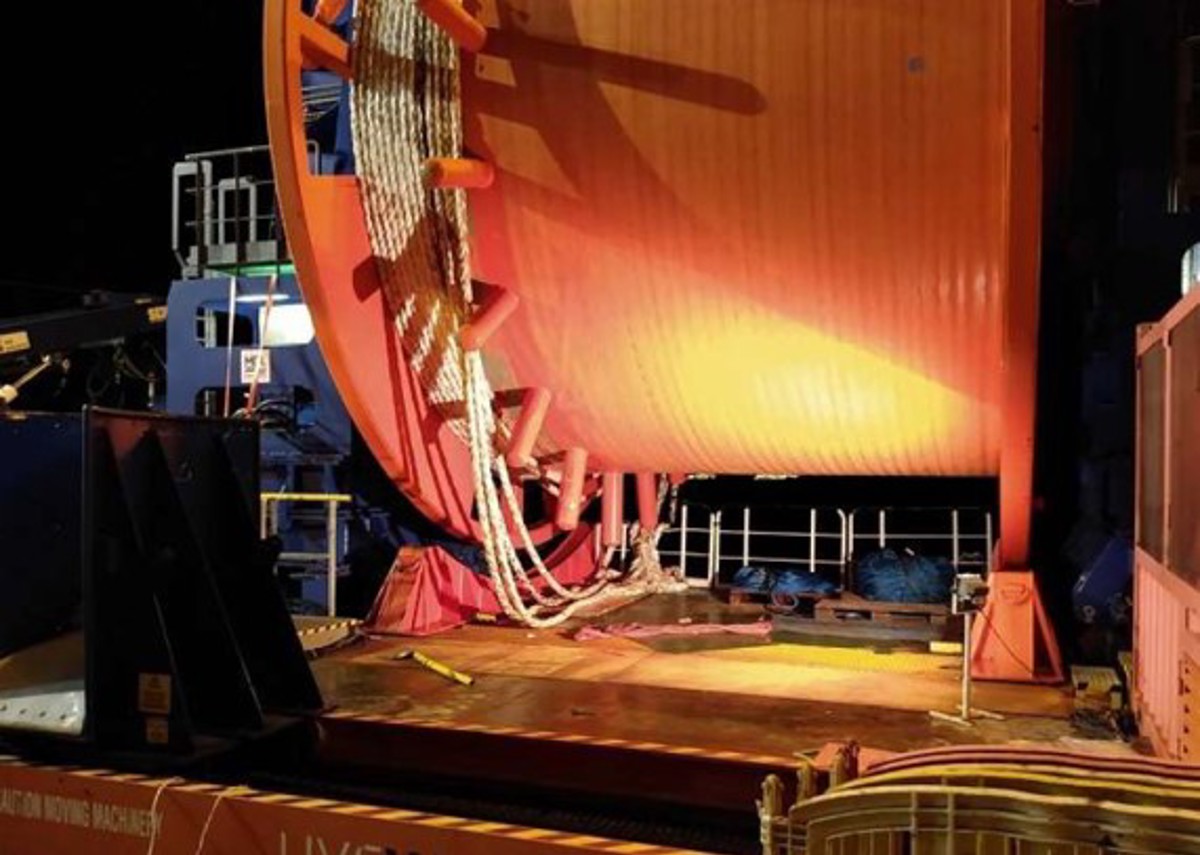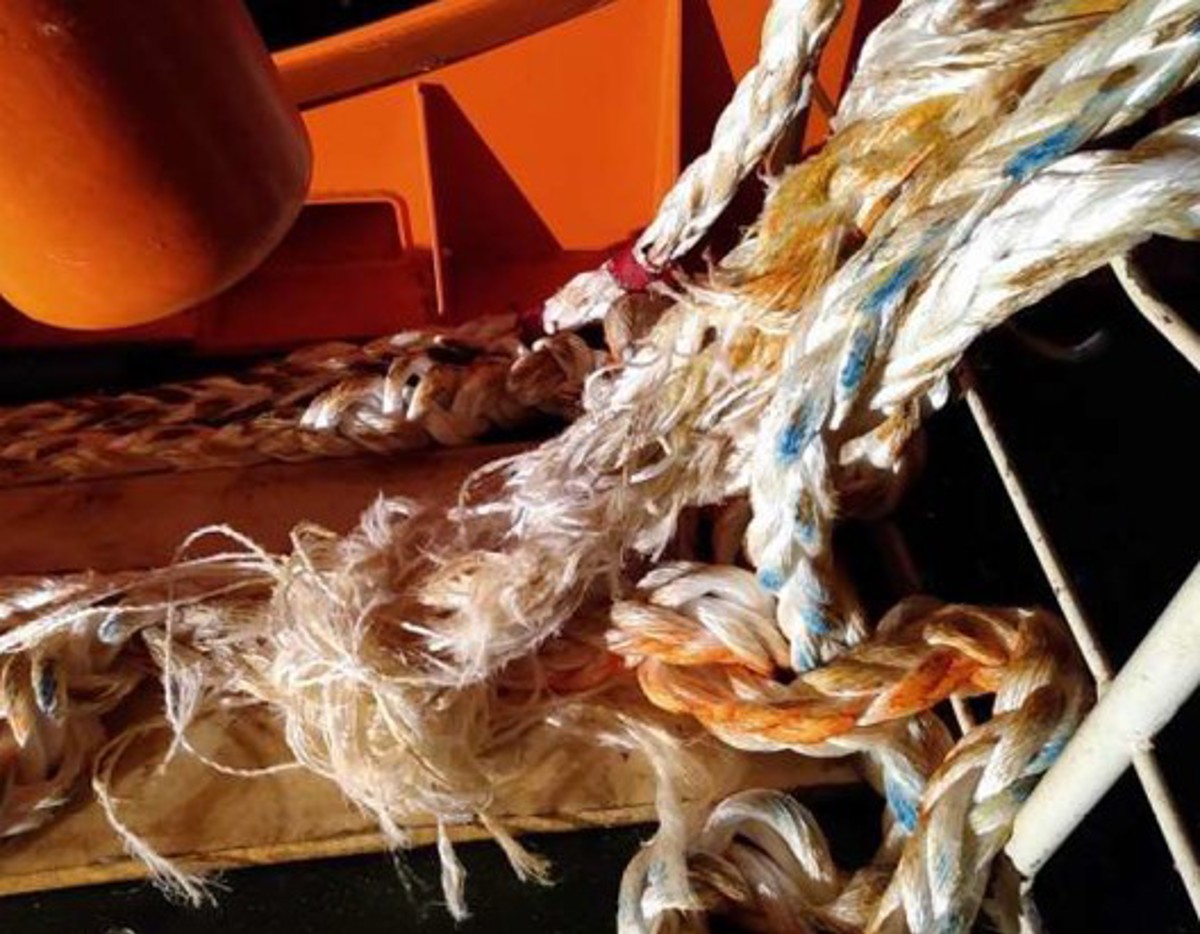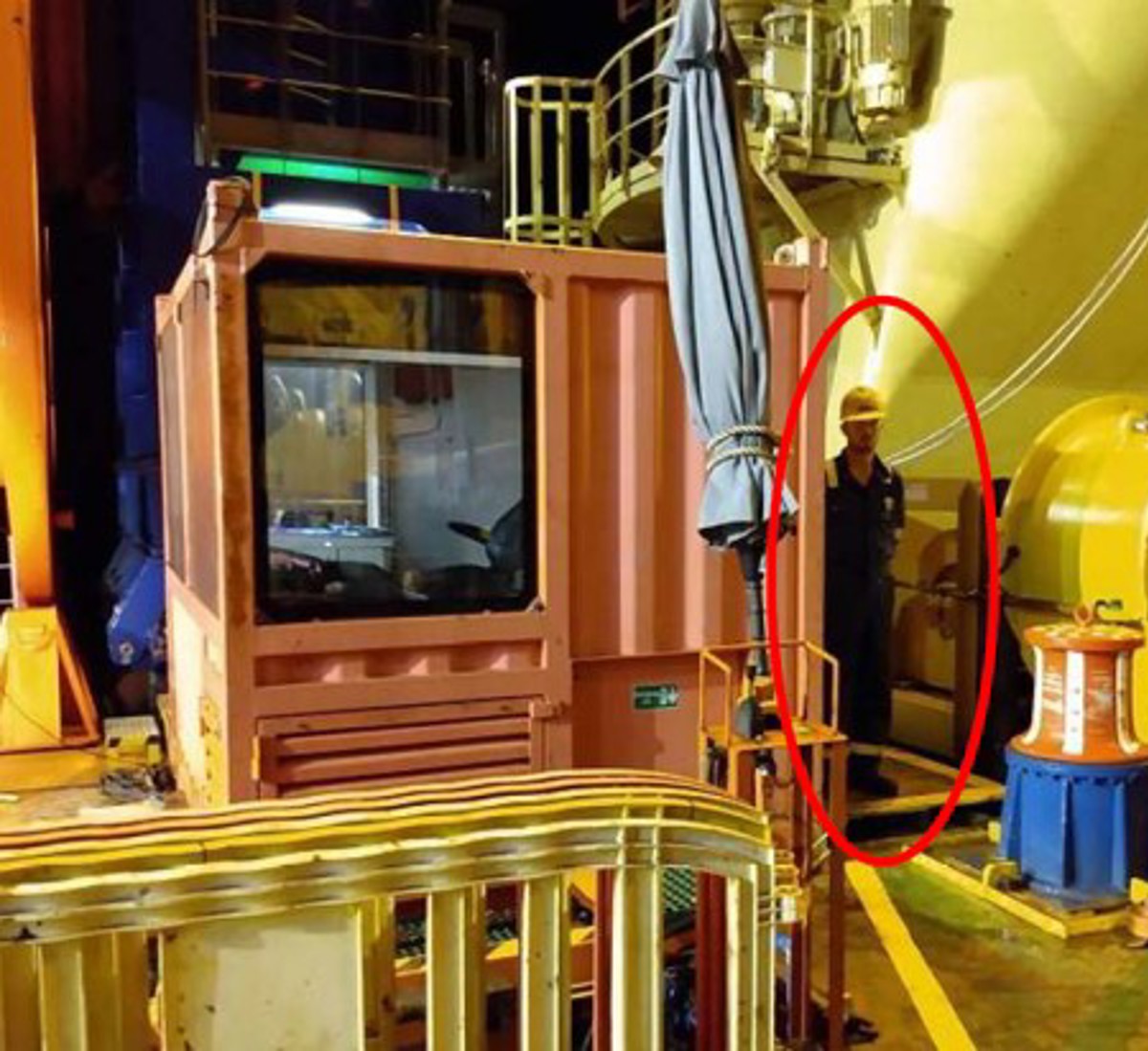Failure of 64mm polyester rope in subsea mooring operations
- Safety Flash
- Published on 9 December 2021
- Generated on 28 December 2025
- IMCA SF 34/21
- 2 minute read
Jump to:
A 64mm polyester rope parted during the lowering of subsea equipment to depth.
What happened?
The failure occurred between the Mooring Line Deployment Winch (MLDW) and the pennant, due to overload caused by lack of synchronism between the crane and the MLDW.
The operation was immediately stopped. No-one was injured, but damage was caused: there was a break in the balustrade of the cable lowering ramp and damage to the window of the MLDW control cabin.
What went wrong?
Although the MLDW operator three times raised his concern to the supervisor to pay out extra line to reduce the tension, this was not recognised as a STOP WORK or other signal to stop and re-assess the situation. The supervisor was concentrating on moving the vessel into position as there were simultaneous operations (SimOps) taking place. A clear “STOP” was not used.
Our Member’s investigation found:
- Tension on the rope increased leading to it parting.
- Company procedures were not followed.
- Cranes were lowered without giving sufficient slack on the rope.
- There was miscommunication and a lack of situational awareness during the operation.
- No-one stopped the job – STOP WORK authority was not used.
Actions
- Indicator installed to allow winch operator to see rope tension.
- Better practice developed on co-ordination of simultaneous movement of crane and winch.
- Reiteration of and retraining in existing procedures.
- Encourage all in their right and responsibility to use the STOP WORK Authority and how to exercise it.
Members may wish to refer to:
- IMCA video: HSS036 In the line of fire
- IMCA short video: Be prepared to work safely – Line of fire
Related Safety Flashes
-
IMCA SF 28/21
15 October 2021
-
-
IMCA SF 28/21
15 October 2021
-
IMCA Safety Flashes summarise key safety matters and incidents, allowing lessons to be more easily learnt for the benefit of the entire offshore industry.
The effectiveness of the IMCA Safety Flash system depends on the industry sharing information and so avoiding repeat incidents. Incidents are classified according to IOGP's Life Saving Rules.
All information is anonymised or sanitised, as appropriate, and warnings for graphic content included where possible.
IMCA makes every effort to ensure both the accuracy and reliability of the information shared, but is not be liable for any guidance and/or recommendation and/or statement herein contained.
The information contained in this document does not fulfil or replace any individual's or Member's legal, regulatory or other duties or obligations in respect of their operations. Individuals and Members remain solely responsible for the safe, lawful and proper conduct of their operations.
Share your safety incidents with IMCA online. Sign-up to receive Safety Flashes straight to your email.


